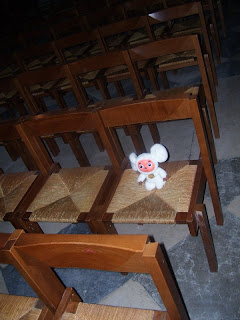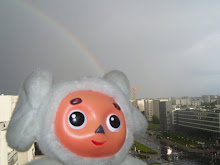Some of the first thoughts that usually cross people's minds when they think of communism are of long lines, empty store shelves, and the occasional purge. In this day in age, where information is processed and sent in fractions of a second, where people are plugged into the Internet around the clock, and where everything is supposed to be over before it even began, bureaucracy still brings everything to a crawl.
Most people hate places like the nefarious DMV (I never had a bad experience there, just for the record. I know many people would rather be castrated that going in there again.) The boredom of sitting in the office for untold amounts of time, counting the ticks of the clock, only to be harassed by some grumpy clerk. This is the true definition of damnation.
When I was in college, I thought bureaucracy couldn't get worse. I thought (and still hold the idea) that the entire administration of the school ought to have been fired wholesale and replaced with people who: A) gave a shit, B) didn't defend their worthlessness and prop up their antiquated system. I was constantly hounded them for not paying fees and was only vindicated by showing them cancelled checks (and then, I was often given an excess check for overpaying.) The amount of hoops I had to jump through could have supplied several circuses, and everyone there was an asshole to boot. Form after form was completed, signed by the proper authorities, rejected because of a misunderstanding, re-filled out, re-signed (after haggling to get an appearance), handed in to be mulled over, ended up in a 50% chance of being rejected again.
When I was in Germany, there bureaucratic system was deeply ingrained into everything. I came away feeling that the Germans loved nothing more than bureaucracy with its stamped and approved forms, meetings to address matters of negligible importance, and the waiting times they entailed. The Germans, however, were very good at it and everything sped along quite rapidly. For example, my passport was supplied with a visa in a little over a week. There were hang-ups (I never did get my student ID), but I did kind of like how they firmly stamped my forms ten times with gusto.
Now, I am in Poland and the bureaucracy here is like nails on a chalkboard. It's not so much the forms I have to fill out, but the waiting. Unlike Ned Flanders' description of the post office (where he explains that it's the only thing he hates. He even had nice things to say about mosquito bites and fluorescent lighting) where everything is rush, rush, rush, the post office here is slower than cold molasses. Picking up a package will result in a five-minute scrutiny of your documents, then the postman will ever so slowly get up and wander about, shuffling through huge piles of folders and packages, looking for the one that's yours. Mailing a letter takes even longer and most of it is due to the ant's pace of the workers.
Right now, I happen to be waiting for a work permission, which has taken about three months. Every so often, I'm notified that I have to collect some other piece of information and have it sent off. It's next to torture.
Prophesy
-
For a species that communicates instantaneously, that has access to the sum
of human knowledge accessible at a few strokes of the keyboard, we continue
t...
1 day ago

_(cropped).jpg)
.jpg)
.jpg)
.jpg)
.jpg)
.jpg)
.jpg)
.jpg)
.jpg)
.jpg)
.jpg)
.jpg)
































